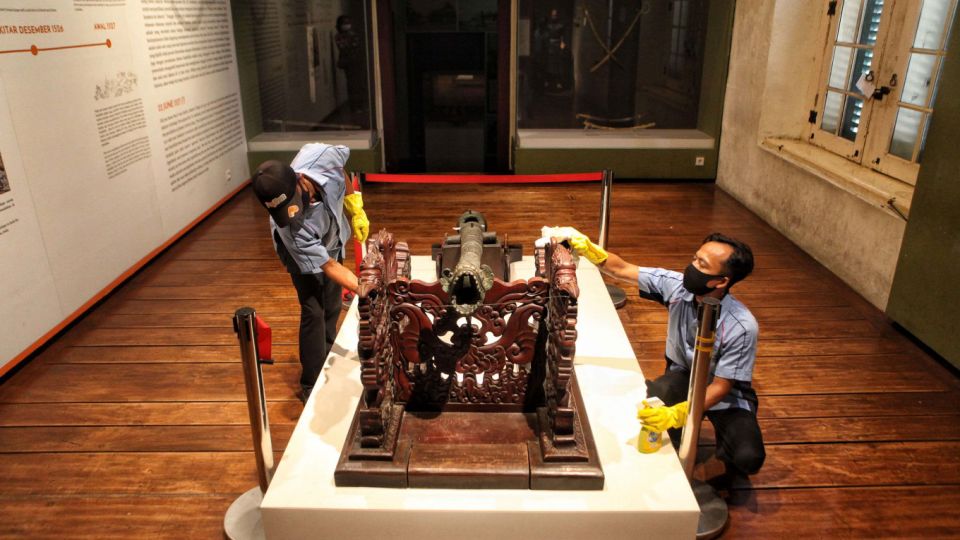May 16, 2025
JAKARTA – A government project to rewrite parts of Indonesia’s history has prompted concern that it might discourage scientific discourse and close off any other interpretations of historical events.
Culture Minister Fadli Zon, who introduced the plan in late December of last year, said last week that the project to release a new set of history books is underway and involves at least 100 historians from various universities. The books are expected to be ready by the time Indonesia commemorates its 80th Independence Day celebration on Aug. 17.
Fadli’s planned updates will center on studies by historians that suggest Indonesia was not colonized by the Dutch for 350 years, as school history books usually claim.
The project has the support of Indonesian Historian Association (MSI) chairman Agus Mulyana, who said in December that the Dutch colonization actually occurred in stages and not simultaneously across all regions. He said Indonesia “requires reinterpretation that we were not a defeated nation”.
But even long before Fadli’s initiative, academic circles have been debating about the length of the period of colonial rule, given the existence of independent regions in parts of what is now Indonesia, such as Aceh and Bali, until the early 20th century.
The new books will also cover other eras of the nation, from prehistoric to recent administrations in the Reform era.
“Every [historical] aspect that needs updating, we’ll update it. For example, the previous history books did not cover the period of [former president] Susilo Bambang Yudhoyono forward, so we’ll add them,” Fadli told reporters last week.
The minister was referring to the last major historical work on Indonesia: a nine-volume collection of books titled Indonesia dalam Arus Sejarah (Indonesia in the Historical Current) that was published in 2011 and traces Indonesia’s history up to the Reform era.
‘Official history’
While many of the details of the project seem arcane, the government wants the accounts in the new books to be the “official history” of the country.
“This [collection of] books will serve as a sort of official history of Indonesia, and it will be the main reference in history classes across all educational levels,” Fadli said.
This alarmed historians who are not part of the project.
Andi Achdian from the National University (UNAS) warned that this project would create a single interpretation of history, which could reduce freedom of thought in a democracy.
“A single interpretation is an erosion of our democratic life after the Reform [movement in 1998],” he said on Wednesday.
Read also: Govt to revise nation’s history, Culture Minister Fadli says
Another historian, Erwien Kusuma, said: “it could encourage a perception that other sources of history are unofficial and less credible.”
“It should not be the nation’s sole historical reference. History is a dynamic discourse, not a dogma.”
Softening past crimes?
Historians and human rights activists are also alarmed by the possibility that the project could pave the way for historical revisionism of past crimes that happened during the previous administrations.
Andi of UNAS feared that there might be a “softening” of perspectives on the New Order authoritarian regime of late president Soeharto and an embellishment of the Reform era succeeding it.
“There may be more glorifications of what the New Order and the Reform era achieved than the problems that surfaced during those times,” he said.
Read also: Victims, families urge Jokowi to rewrite history on rights abuse
Andi said he hoped that culture minister Fadli, who is one of the cofounders of President Prabowo Subianto’s Gerindra Party, would remain objective in leading the project.
“While I have yet to know his stance on Reform administrations, we all knew the minister’s background well enough to know where he might probably stand,” he said.
Fadli and his deputy minister Giring Ganesha did not immediately respond to The Jakarta Post’s request for comments.
Usman Hamid, executive director of human rights group Amnesty International Indonesia, called for “an honest writing of past political violence and gross human rights violations” in the books, including by integrating the narratives of the victims.
“It is the state’s responsibility to explain who our nation is, including why and how we must resolve the past to uphold truth and justice,” Usman said.


